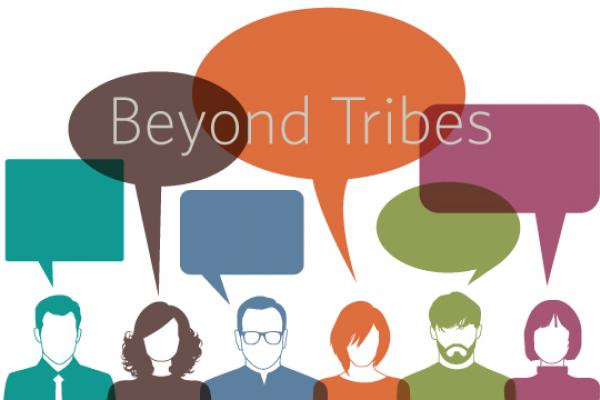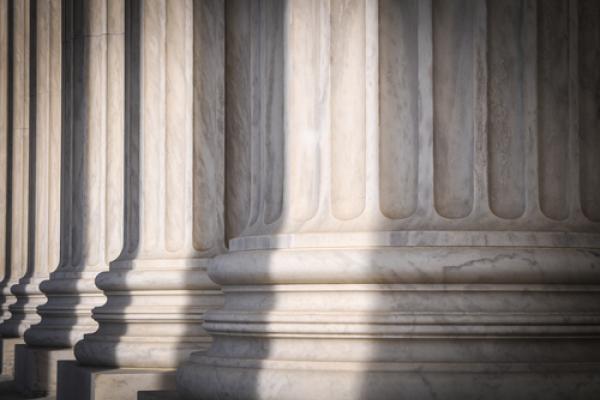Yesterday morning, an op-ed piece went live on CNN by a young evangelical author named Daniel Darling, titled " Millennials and the false ‘gospel of nice.’ Darling’s piece is clearly written in response to many recent articles — like Rachel Held Evans’ recent piece "How evangelicals won a culture war and lost a generation " — which argue that many of the leaders of evangelical Christianity have abandoned the core convictions and teachings of Jesus Christ and instead have leveraged their faith as a weapon to be used against anyone who disagrees with their political and moral principles that they claim are rooted in Scripture.
All of this is very fresh in our minds as news broke yesterday that Christian relief organization World Vision lost more than 10,000 child sponsorships from people who disagreed with the organization’s policy change on hiring people in legal same-sex marriages. To many who watched this controversy unfold, this is an utter travesty. It seems simply unfathomable that anyone who claims to follow Christ could justify removing support from the impoverished children that they know by name because they disagreed with the organization’s hiring policy.
In his op-ed piece, Darling argues that the cry of many progressive and millennial evangelicals is:
"If only orthodox evangelical leaders would give up their antiquated beliefs, get more in step with the real Jesus, the church and the world would be better off."
He then continues by saying that:
"embedded in this narrative are two presuppositions: Young evangelicals are fleeing the church at a rapid pace [and] the real message of Jesus looks nothing like orthodox Christianity."
When I read these comments in Darling’s piece, I was utterly fascinated. Because as a millennial evangelical, and one who is participating in these conversations on a national and international level, I have never heard a single person call for "evangelical leaders to give up their antiquated beliefs." I have never heard anyone say "the real message of Jesus looks nothing like orthodox Christianity." When I read Darling’s piece, it became crystal clear to me what the key problem is that is causing so much friction between the "old guard" in evangelicalism and us millennials:
The old guard has confused orthodoxy with their political and moral interpretations of Scripture.
These are important conversations we are having. Where do we invest our money responsibly in organizations who do the work of justice? How do we interpret Scripture regarding sexuality and marriage, and how does that intersect with church and parachurch employment practices? In what ways can we truly love our neighbors — gay, straight, rich, poor, Christian, Atheist? These are questions that matter to real life people in our world, and we must talk about it.
But we are talking too fast.
What is troubling about the events of the World Vision Reversal last week is not just the divisive and contentious nature of the voices coming from different sides of deeply entrenched ideological lines, but the speed with which it happened. So much of the hurt came not from the impact of actual punches, but from the whiplash of sudden, rapid reactions.
It has been a tough go for the church in the United States over the past couple months. The name calling, division, and posturing reached a deafening volume last week in the wake of the World Vision controversy around employing those in gay marriage.
Noise.
Massive amounts of energy poured into proving our “rightness” and your “wrongness.”
Relationships severed. Most without ever having created the space to share a meal and simply listen to one another.
Social media. Interviews. Articles. Press releases.
Noise.
There have been so many chiming in on this thing that I saw no need to jump in and, well, to be honest, I’ve just been sad. Sad at the failed state of discourse within the church. Sad at the demonization. Sad that hungry kids across the world were losing their access to basic needs to live as a result of our inability to live, love and lead … together.
Biblical themes have been used throughout history to share the universal struggle of humanity; temptation, rebellion, coming of age, the degradation of the moral compass, courage in the face of humanity, and of course, faith.
William Shakespeare uses biblical elements in his plays. We witness in his writings themes highlighted in David's narrative, Adam and Eve's story, and Cain and Abel's tragedy. These stories are central to the Western canon. We cannot get away from these themes and stories, for they rest in the consciousness of our culture.
The film Noah, directed by Darren Aronofsky, is a daring, powerful, and imaginative retelling of the Noah story. Aronofsky takes the central elements of the biblical narrative and expands the story, as artists are called to do, to allow the audience to witness, not a historical world, but a metaphorical universe where the choices of humanity disrupt the sacred divine rhythm of creation.
The trouble is that not enough people have come together with the firm determination to live the things which they say they believe. - Eleanor Roosevelt Eleanor Roosevelt + Sign up to receive our quote of the day via e-mail
Christianity consists of thousands of tribes, cliques, and communities — each with different theologies, traditions, and doctrinal beliefs. Within a Westernized society obsessed with celebrity, entertainment, popularity, conflict, and money, it can be easy for Christian groups and communities to clash with each other.
For the modern church, much of its recent legacy has involved conflict, division, and controversy. Christians have developed a love-hate relationship with theologians, pastors, and church leaders — and it’s dividing the church.
Many Christians see their faith journeys as series of either/or situations and decisions — this is bad. Because as much as we want things to be clear, concise, and black-and-white, reality is complex and messy.
Pride, greed, hatred, bitterness, fear, and ignorance often cause Christians to promote distrust instead of unity — but what if Christians were more patient, graceful, and forgiving of each other?
As the Intergovernmental Panel on Climate Change (IPCC) releases a groundbreaking and comprehensive report detailing the impacts of climate change as “severe, pervasive, and irreversible,” young evangelicals across the United States are coming together to pray for urgent and responsible climate action to protect life and defend their future. Organized by the Young Evangelicals for Climate Action, the Evangelical Environmental Network, and Renewal: Students Caring for Creation, prayer events are being held across the Nation — and on more than 20 Christian campuses — in recognition of April 3 as the 2014 National Day of Prayer for Climate Action.
While evangelicals are not typically associated with climate action, YECA spokesperson Ben Lowe points out,“Climate disruption is not just a scientific or political issue — it’s first and foremost a moral issue and biblical issue … It’s about protecting life and, as evangelicals, we’re particularly concerned about the ways our pollution and political inaction is affecting the poor and those who are most vulnerable.”
Communities around the world are already experiencing the negative impacts of climate change. The new IPCC reports details how the poorest countries are being seriously affected by climate change, with severe consequences to global food security, human health, and economic development. The poor will not be the only ones influenced by climate change, as IPCC Chairman Rajendra Pachauri says, "Nobody on this planet is going to be untouched by the impacts of climate change.”
Yesterday, the Supreme Court struck down a law that limited the amount of money that an individual can contribute to political campaigns in a two-year election cycle, while upholding the limit that an individual can give to a single campaign in the same period. Previously, the law limited total individual contributions to all political campaigns to $48,600, while capping individual donations to a single campaign at $2,600.
The bottom line of yesterday's McCutcheon v. Federal Election Commission ruling is that there will be more money in politics, as the Court doubles down on the controversial 2010 Citizens United v. Federal Election Commission ruling that allowed unlimited, anonymous expenditures by outside groups on election activities. Those with resources can now contribute up to $2,600 in all 435 congressional districts, more than 30 Senate races, and the presidential election, while at the same time giving millions more to Super PACs in support of these candidates.
The ruling will give more influence to corporate and labor lobbyists whose groups contribute to political campaigns. It is still illegal to give a donation that explicitly requests a legislative action in return for the contribution. But while politicians spend hours every week making phone calls soliciting contributions, they aren’t likely to forget who is funding their political future. When they hang up the phone and meet a lobbyist in their office whose group is funding their campaign, there is an unspoken understanding that the politician will be more open to the idea that lobbyist is presenting.






